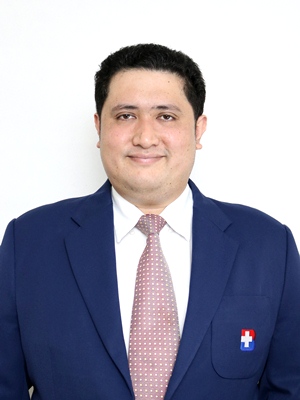Depression can occur in anyone. Statistics showed that 20% of the population is affected by depression. If treated early, there is more chance of a cure. If left untreated, it may affect your well-being up to a point of self-hurt. Therefore, everyone should understand about depression so that we can handle it properly.
Q: What is depression?
A: Depression is caused by chemical changes in the brain, which can stem from prolonged stress that leads to chemical imbalance. In some patients, it might be genetically inherited.
Q: What are signs of depression?
A: Depression can turn an active person into someone who is sad and lacks energy, does not want to do anything. Most importantly, it may affect their sleeping or eating habits. Some patients may experience suicidal thoughts.
Q: How do I know if I’m depressed?
A: The easiest way to assess depression is to measure your energy. If you start experiencing lack of energy, lack of motivation, sleeplessness, obsessive thoughts, lack of focus, or if you feel low self-esteem, loss or gain or appetite, suicidal thoughts or want to self-harm, etc., you may have depression.
Q: How to notice loved ones?
A: Changes in behaviour in your loved ones may be signs of depression. For example, they may have been outgoing and now they are quiet, introvert, do not want to engage in conversations or activities. Try talking to them to see what is going on with them and find out why they are keeping to themselves.
Q: Do people with depression in different age groups behave differently or not?
A: It is very interesting that people in different age groups show different signs of depression, such as
- Teenagers have raging hormones and may show their depression as impatience and moodiness.
- Working age group will show work-related depression, such as stress from work or relationship problems, etc.
- Elderly group experience depression due to degeneration of the brain. They may show signs of depression or concerns about their health. For example, they may have aches and pains here and there or visit multiple practitioners. These may be signs of depression in elderly patients.
- Postpartum depression can occur due to hormonal changes. After giving birth, a woman’s hormone levels will drastically change, which can lead to postpartum depression, which can manifest as constant crying, or docile.

Q: What are treatments for depression?
A: There are various ways to treat depression, such as
- Medication. Modern medication for depression has better efficacy and less side effects than before.
- Therapy or counselling. Various tools and methods are available for therapy, depending on each patient’s individual needs.
Q: What is the current technology to treat depression?
A: Transcraniall magnetic stimulation (TMS) has been used for treatment of depression for a long time and has high effectiveness. Currently, there are many methods. Please consult a psychiatrist and follow their recommendation carefully.
Q: What is the difference between depression and bipolar disorder?
A: Depression and bipolar disorder are different. Bipolar disorder is the mood swing between extreme depression and extreme happiness. Patients tend to be hyperactive and alternate between the two. However, depression maintains in the depressed stage without the swing to the other side.
Q: How can we prevent depression?
A: Try to have balance in your life. We have so many roles in our lives: work, family, hobby, interests, things we want to do, things we need to do, etc. Maintaining a good balance will help prevent depression.
Q: Why consult a psychiatrist?
A: Do not be afraid to talk to a psychiatrist or a psychologist because they can help you solve some problems. If you are feeling stressed or feeling like your life is out of control and you cannot handle it, try consulting a specialist to search for the right way out.
Mental Health Rehabilitation and Recovery Center, Bangkok Hospital is ready to provide consultation to patients of all ages, from teenagers to working groups and senior citizens. We have a variety of tools, methods, and technologies that can be used in the treatment plan. Do not wait until you suffer from depression because good health begins with good psyche.










